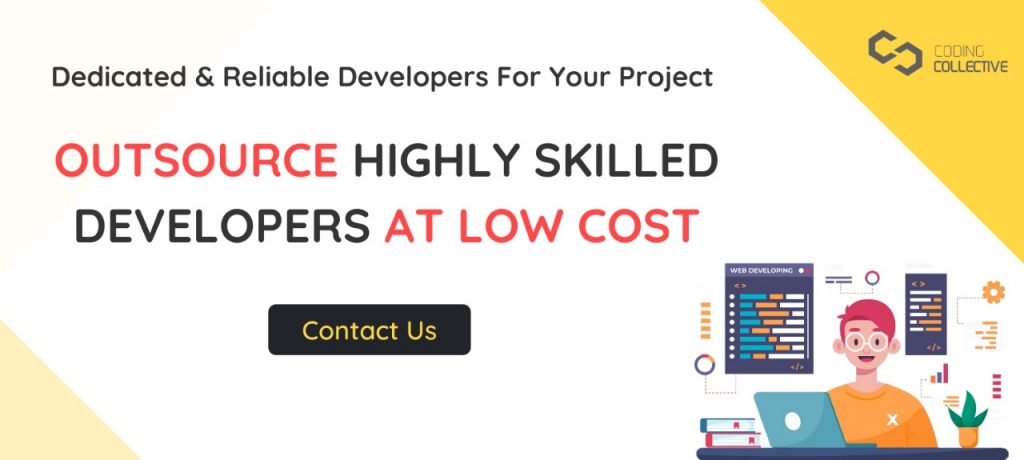
1. Introduction To Remote Developer
With the pandemic, we learned something very vital – the flexibility and advantage of remote work. For many people and businesses, COVID 19 spelled certain doom. It forced workers to re-evaluate their work styles. With livelihood in the lines, businesses questioned – is this job role tethered to the desk, or can it be done from home, remotely?
For developers, programmers and coders, the remote work environments have worked successfully. These are very in-demand roles currently. The world at present is based on digital science – be it our home, our office, our cars, or our communication apps. Coding, programming, and developing are very important parts of the current digital world we live in. As such, it is a very lucrative career option. There are innumerable possibilities and growth opportunities, along with remote work options, and these three professions are very promising.
For starters, let’s look into coding, programming, and developing – what they are and the difference between the three.
2. What is coding?
Simply speaking, coding is the technical process of transforming a design specification into a binary format for processing by a computer system. In other words, coding is translating natural language into a source code, which is actually machine-readable input.
Coding is the first step for beginners. It is a subset of programming. To begin programming, coding is the initial step.
Coding is a highly demanded job with lots of career possibilities. Coding is there in every industry. Even in non-tech roles, knowledge of coding will help to communicate with the programmers and understand their requirements and the problems intended to be solved.

3. What is programming?
Programming is the way to decipher how to instruct a system to execute a code to receive the desired result. A code is written in a language that a system will understand a follow. Programming is to decide and plan the codes in a sequence that will give the user the desired result. Programming aims to provide the solution to a given problem.
Eg. A program can instruct a system to:
Calculate the return on investment of a stock
Programmers design and create operating systems, which run the various apps and applications we use currently. Programming is logical. Programming is thinking.
4. What is developing?
Development is the process of designing a system and product which meets the technical specifications and end-user needs of the product/program. The development includes several steps like identifying the requirement of the end-user/the purpose of the software or program, analyzing the requirement of the user, designing, developing, implementing the design, testing, and finally releasing the product. It also includes maintenance of the product and updating the same.
A developer works by himself or in a team to create functional software. This end-to-end process is referred to Software Development Life Cycle. A developer not only develops a database but also the application interfaces for the user/s.
5. Coding vs Programming vs Developing
While the terms coding, programming, and developing are used interchangeably, there are a few key differences among the three. A simplified way to differentiate and understand the three is as below:
| Coding | Programming | Developing |
| Translating natural language into machine commands | Sequencing the codes and developing them into fully functional solutions | Identifying and creating a solution to a real-life problem by building applications/software to solve that problem through the application of a developed program |
| The simplest act of translating language in a machine-understandable syntax | It is logical and requires critical thinking to realize how to sequence a series of code such that the system understands it and provides the answer | It is creative to an extent, as the developer has to understand how the system will perceive a command and how to best utilize it to provide the desired result to the end-user |
| It is a subset of programming and finally, developing | It is a subset of developing | It is the entire process of identifying a real-life problem, analyzing how to solve it, developing an application (through coding and programming) to solve it, testing it, marketing it, releasing it, and also carrying out maintenance and updating activities. |
| Coding follows a trial-and-error approach | Programming follows a logical approach | Developing follows an attention to detail approach with a bigger picture in mind |
| Coding requires an update-to-date knowledge of computer languages, keywords, and syntax | Programming requires substantial knowledge of algorithms and data processing | Developing requires in-depth knowledge of project management and understanding a problem |
6. Beginners guide to starting work remotely
In the current times, working remotely has become the dream job for developers. Remote working enables you to take control of your life and schedule. Additionally, it cuts down time spent in commute. However, it is desirable to land a job working with the top companies in the world right from the comfort of your home. Here is how you can go about getting your first remote job as a developer:
Step 1: Find a remote job opportunity
How to find a remote job? Well, log in to Coding Collective and browse the opportunities posted there by the industry leaders and growing businesses. You can also keep your eye out on social media sites and respond if someone posts looking for a developer.
Step 2: Do your research
Research and find the companies that encourage and use remote working for developers. Approach these companies for job opportunities. Be vigilant and keep an eye out for job postings by these select companies.
Step 3: Evaluate the remote-friendliness of a business
Before saying yes to working for a business remotely, evaluate the remote friendliness of the firm. Many businesses only use the word ‘remote work’ as a keyword for a job posting. Therefore, look into the remote work culture of the company, and do extensive research about the same, before agreeing on a work contract with the company.
Step 4: Working hours and benefits!!
Sure, remote working looks easy, but make sure you check the working hours of the business and when you are expected to connect with your prospective employer. If you are working for an international business, make sure a clear channel of communication is established between you and the employer. Be vigilant about the benefits and compensation the company provides and compare it to the market.
Step 5: Develop a skillset to attract businesses to hire you
Many of you may wonder, how to develop your skillset if you cannot get a job because of a lack of experience. Well, here are some ways you may get experience to grow as a developer:
Open-source work: a lot of popular community-run projects are built entirely by volunteers in their spare time. Involve yourself in such projects. Such projects are mostly done remotely and collaboratively. So, it will hone your remote work skills and collaboration with potential teammates.
Remote work with your current employer: if you are already employed currently, you may consider talking to your current employer about the possibility of remote work in your job role.
Constant learning: to evolve as a developer, you have to be constantly vigilant about the innovations and technological advancements happening. Keep learning, observing, doing online courses, and tutorials, and getting certifications for the same. Join Bootcamp, self-guided online courses to increase your knowledge and experience.
Step 6: Learn about the tools available for developing and collaboration
Make sure you are up-to-date about the remote working tools, and collaboration tools and have mastered the developing tools before you even consider approaching a business to work as a developer – remote or otherwise.
Now that you know how to be a remote developer, go ahead and look for your first remote job.
Happy job-hunting to you!!

7. Working as an established remote developer
As an established remote developer, you are expected to have expertise. Your employer will expect little or no hand-holding at all. Results will be expected and demanded. It may be a bit difficult to get support from a traditional team structure due to a lack of physical interaction with all the members. Being around other developers helps you learn more and try out new ideas through brainstorming and active interactions. They also act as the sounding board for your ideas.
However, you can still continue to improve your skillset and evolve as a developer. A few ways to achieve this are:
- Be serious about your work:
You may feel comfortable working remotely and having no supervisor constantly monitoring every activity of yours, however, it doesn’t mean you can slack off on your work. Even working by yourself, you should give it your 100%. If your dedication is evident, your remote employer will be more trusting and would be even more likely to invest in you.
Therefore, do not slack off, let your work speak for itself, and shine!
- Be mindful of the details:
Be mindful of the details of your work – even if there is no one immediately behind you to supervise. If you find a bug and correct it, don’t just leave it at that. Dig deeper and find out the root cause, the times the error has been happening, and how it affected the project in its entirety. Having an analytical approach will let you have deeper insights into the project and anticipate any obstacles in the due course.
- Encourage feedback from employer and team
Feedback and insights are important keys for you to improve yourself. Encourage your remote team and employer to provide you feedback on your work. It will allow you to gauge the performance of your development and rectify any errors before it becomes a major issue. Additionally, it will enable you to adapt and evolve by learning to be more productive following a new change. It will also add to your skillset and learning.
- Encourage meetings
Even though you are working remotely and have no physical interaction with your team, encourage and hold video conferences often for the team to catch up, share their insights and learnings, evaluate, discuss a problem and ideate a solution together. Not only would it encourage synchronization, but also inculcate camaraderie.
- Communicate with your employer
Always be open and communicate with your remote employer. Discuss your personal interests within the industry, even if it is beyond your current job role. Doing this will make your employer consider you, if and when an opportunity arises. It would not only open more chances for job roles but build a good rapport with your employer too. It would even make it more likely for them to share their resources with you which may add to your learnings and grow your skills as a developer. As you evolve more as a developer, you become an asset to the business and enhance your value to yourself.
Check Out Our Other Blogs Here.
